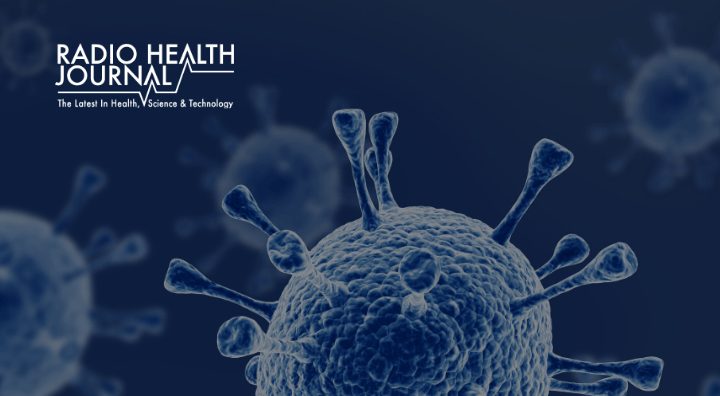Thyroid disease affects millions of Americans, many of whom have not been diagnosed. Experts discuss symptoms, causes, and treatments.
Guest Information:
- Dr. Jordan Geller, endocrinologist, Beverly Hills, CA
- Shannon Rosen, thyroid disorder patient, Cincinnati, OH
- Dr. Jeffrey Garber, Chief of Endocrinology, Harvard Vanguard Medical Associates, Associate Professor of Medicine, Harvard Medical School and lead author, Clinical Practice Guidelines for Hypothyroidism in Adults
Links for more info:
16-08 Thyroid Disease
Nancy Benson: Every day, millions of people wake up feeling like they just can’t function until they get that first cup of coffee. The jolt of caffeine gives many of us the boost we need to get going. But what if that caffeine fix just isn’t doing it for you any more? What if you feel sluggish all day even after a good night’s sleep and your daily cup of joe? Experts say it’s quite possible you may have undiagnosed hypothyroidism.
Dr. Jordan Geller: It’s super prevalent. There’s tens of millions of patients in the United States diagnosed with hypothyroidism. And there are probably many many many millions who are undiagnosed walking around. These are the people we are trying to reach out to, get them to be aware of these symptoms so that they can go to their physician’s office and have conversation with the doctor to get tested.
Benson: That’s Dr. Jordan Geller, an endocrinologist in private practice in Beverly Hills, California. He says in some cases, what starts as an annoyance can rapidly become a serious health issue. It can even be fatal if not treated. The thyroid gland isn’t something to take lightly.
Geller: It’s a gland in the neck, in the front of your neck. The thyroid gland is important for pretty much every function in the body. So when it starts to fail in hypothyroidism, the symptoms that a patient can experience are numerous. For example, patients will have fatigue; they’ll have cold intolerance, so they are always feeling cold no matter what. They often develop constipation. They may have puffy skin; they may have dry skin, dry hair, cracking nails, slow heart rate. Their thinking may be slow. They may notice memory impairment. They’ll often come in and tell me, doc I feel like I have brain fog. It can lead to something called myxedema coma, which is just what it sounds like, it’s actually a comatose state and people can die.
Benson: So what’s going wrong with the thyroid? What causes it to stop working properly?
Geller: What’s going wrong is the gland cannot make thyroid hormone. It can happen for several reasons; it may not have the ingredients, so to speak, to make thyroid hormone, and that main ingredient, in that recipe is iodine.
Benson: Which is why iodine is an additive in many brands of table salt.
Geller: The other condition that can cause low thyroid is an autoimmune condition. This is a condition where the body’s immune system, which normally protects and defends against infection sometimes will turn against the thyroid gland and cause it to get inflamed and that’s a condition that we call Hoshimoto’s, which is the most common identifiable cause of low thyroid.
Benson: There’s also hyper-thyroidism, which Geller says is at the opposite end of the spectrum.
Geller:I often use the analogy with my patients of thyroid gland like having a gas pedal and having a brake. So if hypothyroidism is the brake where everything is slowed down and sluggish, hyperthyroid is just the opposite. These people are revved up, they’re anxious, they feel hot. They’re jittery, they cannot sleep, they’re loosing weight unintentionally and they don’t feel well. They’ll come in and you can just feel the heat and the energy just bouncing off of them. They look like they’ve had 12 expressos.
Benson: Geller says both conditions can be treated with medication, but that hypothyroidism is much more common.
Shannon Rosen: I was thirty years old; I’d just gotten married. It was a really happy time in my life. I’m a fitness instructor, so I love to exercise. One of the first red flags for me was when I was going to the gym I had noticed I didn’t have my normal energy. I got to the point where I was slowing down so much that I could barely sit on the bike to get the pedals to go around. That’s how much it was a struggle. That coupled with the inability to stay warm. I was cold all the time. It got so extreme that I was wearing my winter coat at night to bed in an effort to try to stay warm.
Benson: That’s Shannon Rosen from Cincinnati, Ohio. She suffered through symptoms for six months before consulting a doctor, hoping in the meantime that her symptoms would go away on their own.
Rosen: But they didn’t go away, they got worse. I woke up one day and I said either I’m going to choose to accept this and live with this, or I’m going to try to do something about it. That’s when I picked up the phone and called my doctor and I went in and he suspected a thyroid issue and gave me a blood test called a TSH.
Benson: Rosen says she started to feel better immediately after starting treatment and was back to her normal energy levels within six to eight weeks. But some experts say treating hypothyroidism isn’t always clear-cut, and that, depending on how mild the case is, it might possibly clear up on its own.
Jeffrey Garber: Definitely. In fact, the younger you are, the more likely that’s the case. You can predict who’s most likely to progress, and who’s less likely to progress based on how marginal or severe the test abnormality is to start with, whether the antibodies are present, and what the age of the person is. So the younger person with negative antibodies and only marginal abnormalities has a substantial chance of either reversing or not progressing.
Benson: That’s Dr. Jeffrey Garber, chief of endocrinology at Harvard Vanguard Medical Associates, associate professor of medicine at Harvard Medical School and lead author of the “Clinical Practice Guidelines for Hypothyroidism in Adults,” published by the American Thyroid Association.
Garber: The issue is whether you should be treated. And I think that the discussion, you can argue all day long that populations don’t necessarily benefit from being treated with thyroid hormone, but I think if you’re one the fence and you don’t have another explanation for your symptoms, I don’t want to call it a ploy, but an approach that’s underutilized is to say, well, we don’t want to commit you to life-long therapy if it’s not going to benefit you, particularly if you can get better, but how about just trying some for a while, and let’s try to judge whether you’ve benefitted from it.
Benson: You can learn more about hypothyroidism by visiting the American Thyroid Association website at www.thyroid.org, or by visiting our web site at www.radiohealthjournal.net.
Our writer this week is Polly Hansen. Our production director is Sean Waldron. I’m Nancy Benson.
Sign up to receive email updates
Enter your name and email address below and I’ll send you periodic updates about the podcast.











Leave a Reply